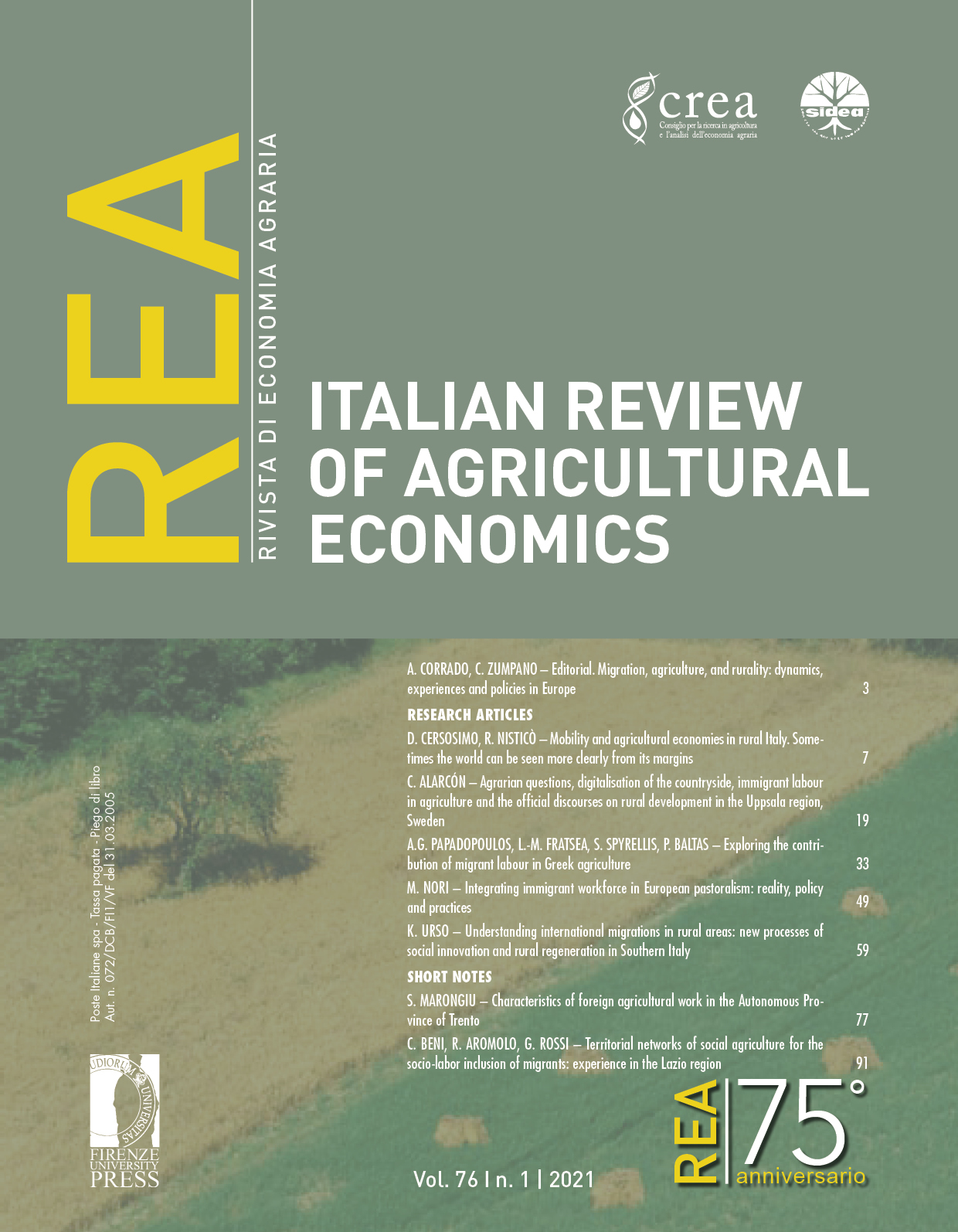Published 2021-05-10
Keywords
- pastoralism,
- migration studies,
- inner areas,
- Mediterranean,
- animal husbandry
How to Cite
Abstract
This work addresses the relevance of immigrant communities in a specific agricultural sector, extensive livestock husbandry – pastoralism. This activity provides a primary source of employment and income specifically in inner and remote rural areas, where intensive farming systems are unfeasible. Trends in the last three decades indicate severe decrements of pastoral farms and herds throughout Europe, and specifically in its southern flanks. Shortage of skilled and motivated shepherding workforce ranks amongst the main triggers of these processes. In Mediterranean Europe, inflows of international immigrants have importantly contributed to fill these gaps, providing critical, though temporary, solutions to the labour market shortcomings. This work questions the opportunity to integrate immigrant shepherds in the process of generational renewal for Euro-Mediterranean pastoralism, and the effectiveness of existing experiences concerning institutional and technical support for these processes. This poses further policy and research questions about the potentials for immigrant communities to contribute to sustainable patterns of rural development.


